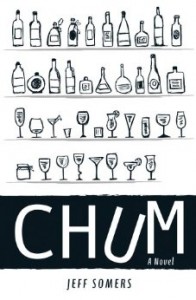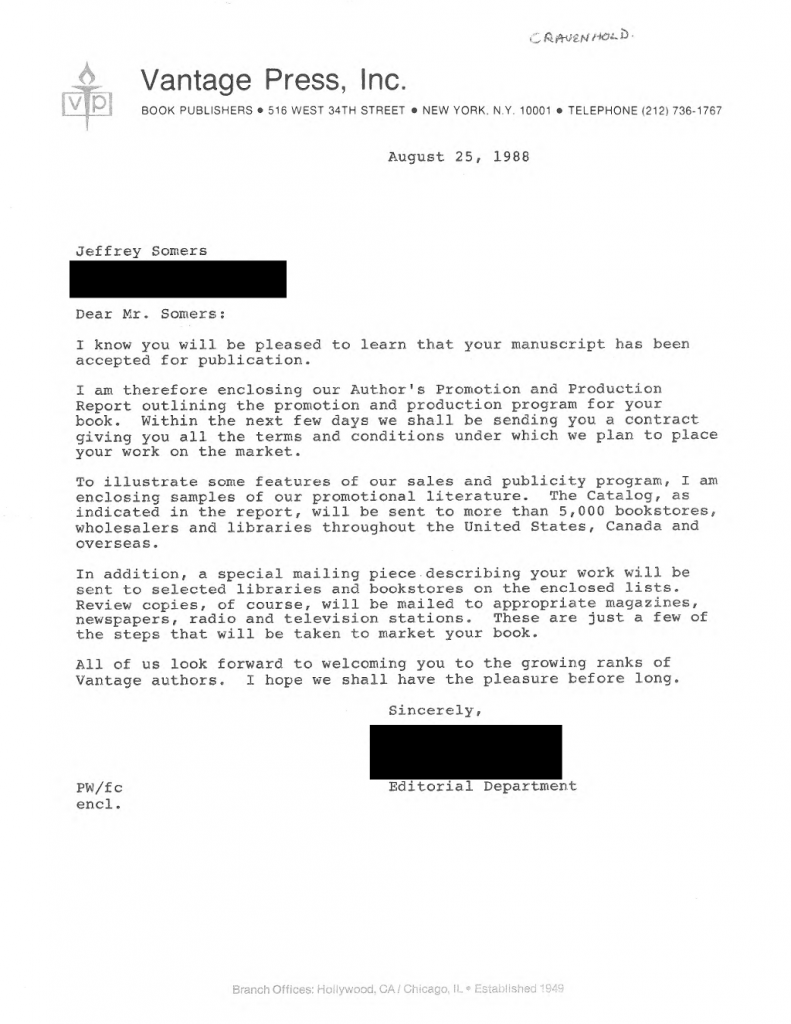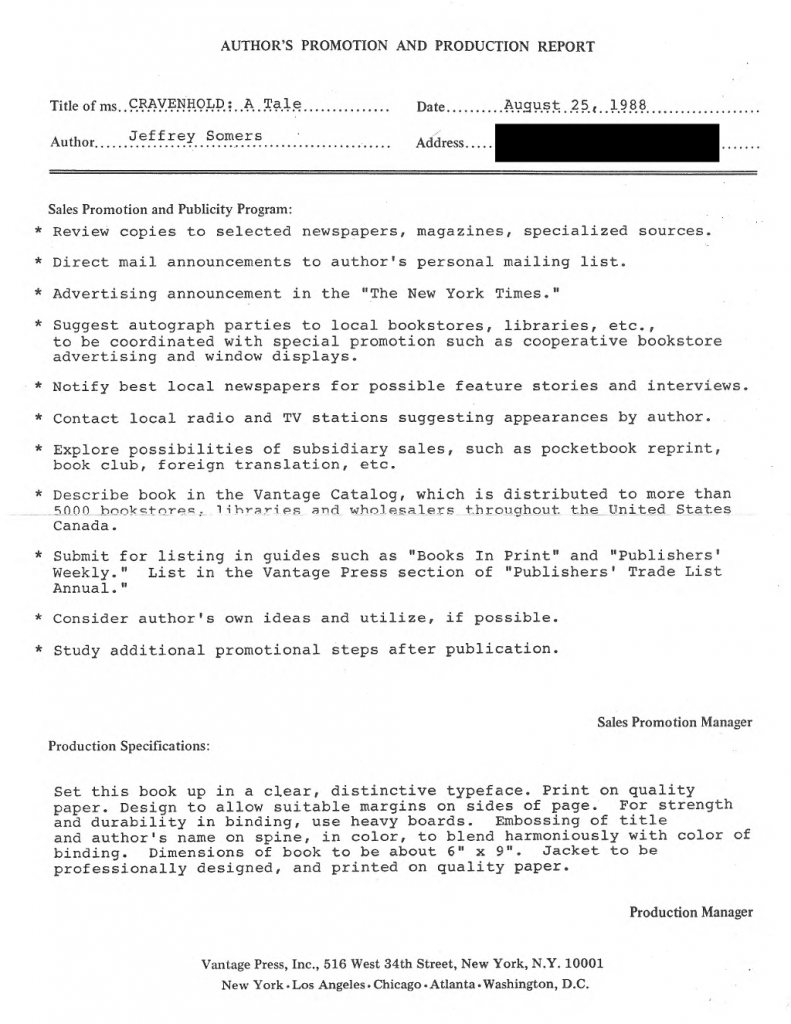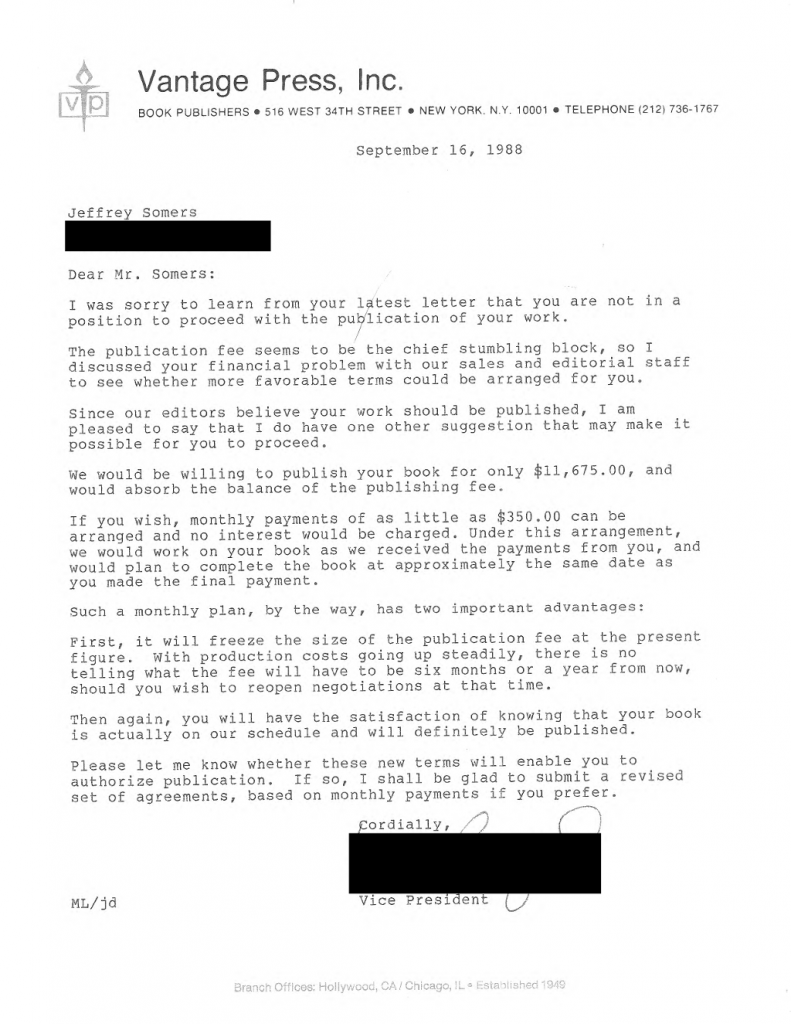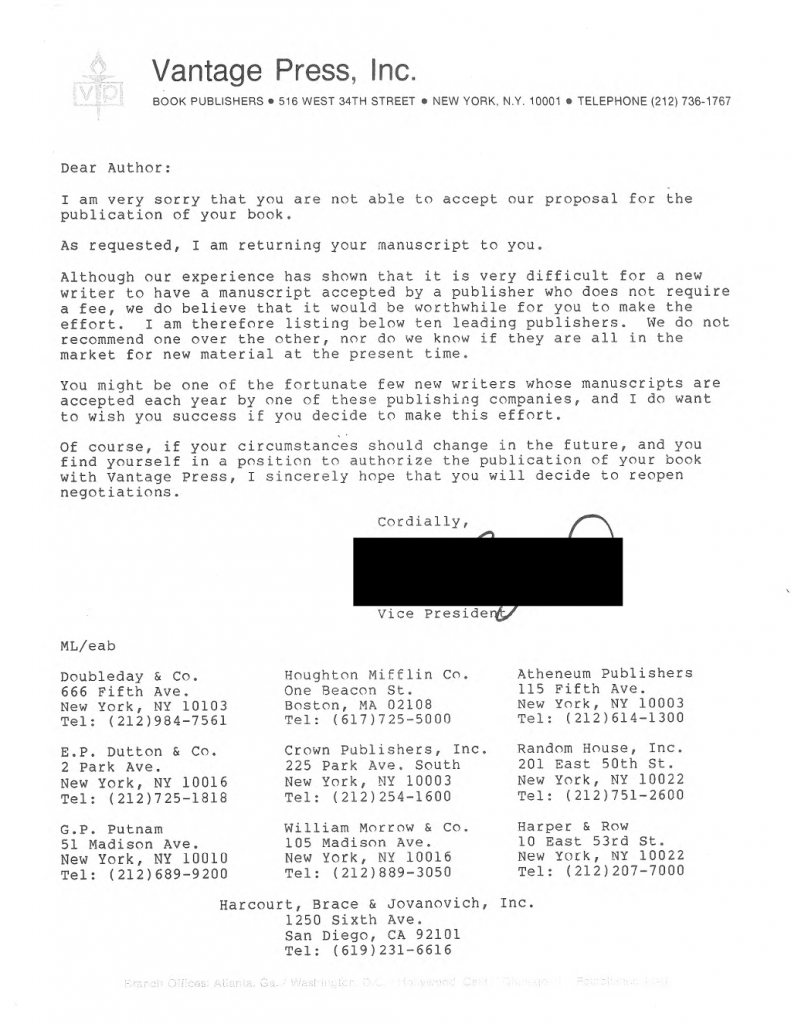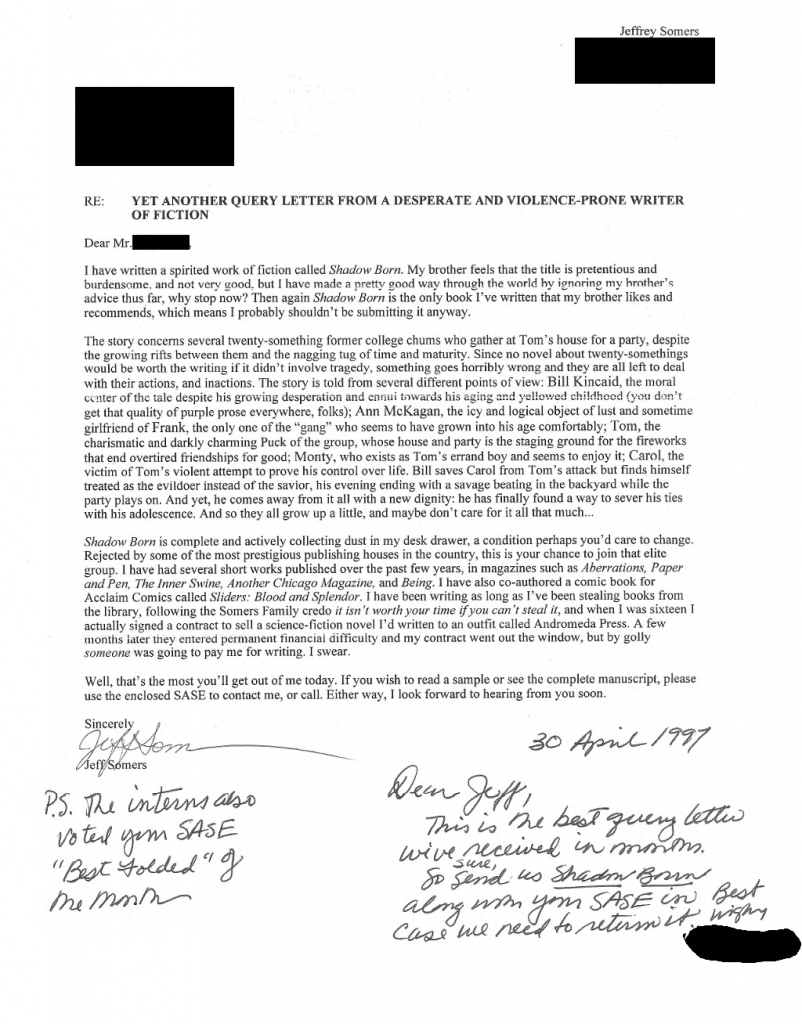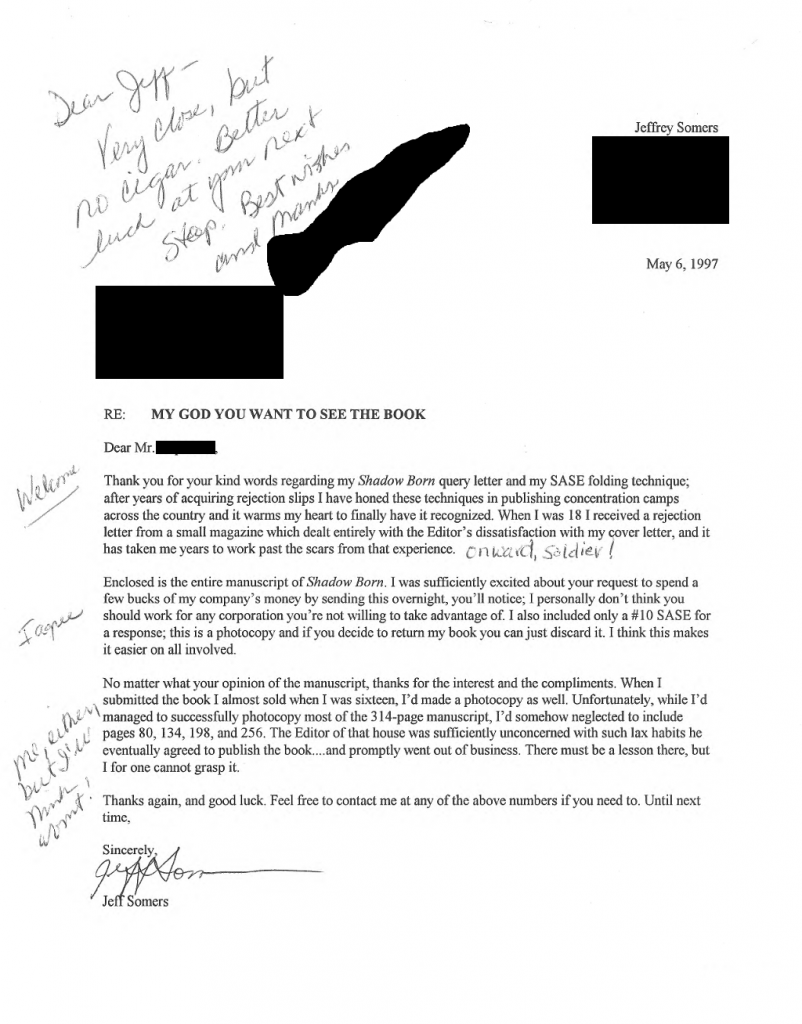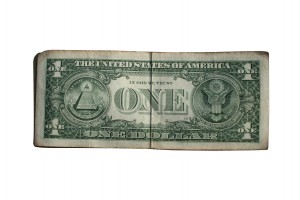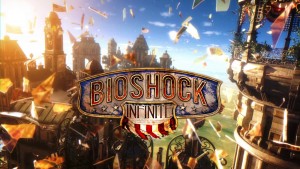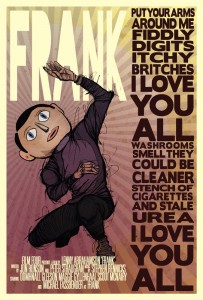
This blog post is as lousy as it is brilliant.
This originally appeared in The Inner Swine, Volume 16, Issue 1/2, Summer 2010.
THERE is an infamous incident: About 20 years ago, give or take, I was sitting in a living room with TIS Staff Artist Jeof Vita watching television. This despite Jeof’s dangerous and horrifying levels of unacceptable odor, which shall be the subject of another article altogether someday when the restraining orders expire.
Anyway.
This is not the story of Unacceptable Odors. This is the story of our Taco Bell experience.
I’d never been to Taco Bell before, which is strange. By that time of my life (carefree, single, and with a liver that wasn’t the size of a football) I’d been to most of your standard fast-food establishments, this being before I learned to love and respect myself. I haven’t actually had a meal at a fast food restaurant in probably a decade now, I don’t think; maybe I’m forgetting something, but at any rate it’s certainly not a common occurrence. Back then, though, I loved that shit. I also loved Olympia beer and any kind of hard liquor found lying around, so that tells you all you need to know about my level of taste and life experience, bubba.
Anyways, we were watching TV, just farting away an evening, when an ad for Taco Bell came on. This might have been back during the ¡Yo quiero Taco Bell! days with that annoying dog, but who the fuck knows—I can barely remember the incident at all. The amazing thing about this is that it’s the last time, I think, that a commercial actually took control of my brain like a wasp riding a roach and made me do exactly what it wanted, which in that case was to leap up with Jeof Vita, get in the car, drive to the nearest Taco Bell, and order some food.
Jeof and I were in perfect harmony: We stood up and went. No discussion, no doubt. The food looked delicious, we were suddenly ravenous, and so we went to Taco Bell. It was terrible, and I’ve never been back, or even mildly desired to. I mean, it might have been one of the worst meals of my life, although my brain has self-defensively deleted the actual sensory input from the meal, saving me from night sweats and bad dreams.
This would never happen today. I’m old and withered, yes, and if I met 1990 Jeff he would be able to defeat me in any sort of Games of Strength or Endurance. But I’m smarter than 1990 Jeff. If nothing else, I now pretty much completely ignore advertising, knowing the central truth of it: That even when it is telling the truth, it is lying to you, somehow. It’s like quantum physics: The commercial can be 100% facts, and yet still equal a lie.
The main thing to always remember about commercials is that they are trying to convince you that you need something you obviously do not need. If you needed it, they would not need to convince you about it; no one has to convince you to eat, after all. They merely try to convince you what to eat, but the necessity of the act is never in question, right? The necessity of, say, drinking Bud Lite, on the other hand, is pretty much given: there is none. Thus, advertising!
Once you realize this, you gain a level of simple perspective. Nothing that is advertised is necessary, because if it was necessary it wouldn’t need to be advertised. Sure, in general the things advertised can be absolutely required—food, again, is a good example. You must have food. But you already know that. You know what food is, where you can get some, which foods you like especially. Yes, advertising can lead you to foods you’ve never tried before but that isn’t advertising’s goal. They don’t want you to be aware of other choices, they want to convince you that you need other choices.
While I don’t doubt that advertising bamboozles me in ways I can’t even imagine every day, shaping my behaviors and desires, I do think I’ve grown more resistant and aware of it. I distrust advertising to begin with, and generally go in to every commercial break assuming I’m going to be lied to, fucked with, and manipulated. This is partly why advertisers more and more target kids—kids are dummies with money, these days. Which is not to say anything specific about the current generation of kids—I was a dummy when I was a kid, too. I didn’t have any money, but times change and kids are now a huge force in discretionary spending in this country, so advertisers like them. See, I’ve got life experience and bills to pay, so I’m a harder sell. Taco Bell is a perfect example: Due to decades of life experience I now know that Taco Bell’s food is like eating plastic that has been flavored with Fail, and I have better choices to spend my money on. Taco Bell doesn’t want to waste time on me.
The most shameful development in advertising over the last few years is, of course, pharmaceutical advertising. The people who come up with these commercials should be lined up and shot in the ass. These commercials all seek to convince us that every little tweak and creak can be best treated with a pill, and strongly advise us to pressure our doctors to prescribe them, with the unspoken admonition, I think, that any doctor who refuses to do so is obviously trying to destroy your life.
FOR GOD’S SAKES, THEY NOW HAVE A PILL TO TAKE IF YOUR FIRST PILL DOESN’T WORK.
Abilify: That’s raw genius, there. If our first pill doesn’t work, you don’t need to reassess your treatment, you need our second pill. That’s like saying, if your first car doesn’t run, you need our second car to pull it along. Convincing people to do shit like this is why advertising is evil, and pharma advertising is like selling your soul to the Robot Devil.
So, my Timeline of Advertising Horror goes like this:
THE INNER SWINE’S TIMELINE OF ADVERTISING HORROR
Age 7: See an ad in a paper for plastic milkshake cups I inexplicably think come with milkshake in them. Pester Mom to buy these cups, which she does. 6-8 weeks go buy as I wait impatiently for my milkshakes. Cups arrive, no milkshakes. I almost commit suicide.
Age 12: Advertisements for the Atari 2600 almost make me murder a man in Journal Square in hopes that he has enough cash in his wallet so I may purchase one. Get a Sears knockoff for Christmas and spend 6 months mindlessly playing Pac Man and Pitfall.
Age 19: The aforementioned Taco Bell incident. Faith in world shattered, stomach never quite the same.
Today: You can’t sell me water when my house is on fire. I’ve gone around the other end of crazy: Frightened of being fooled, I just don’t believe anything and buy nothing but whiskey and processed deli meats. Sure, I’m living like an animal, but at least corporate America isn’t getting much of my money.
The lesson here is that you can only be fooled so many times before you just walk away and don’t look back. I will always have the searing memory of what that Taco Bell meal did to my internal organs to remind me that advertising is a strange game where the only way to win is not to play.
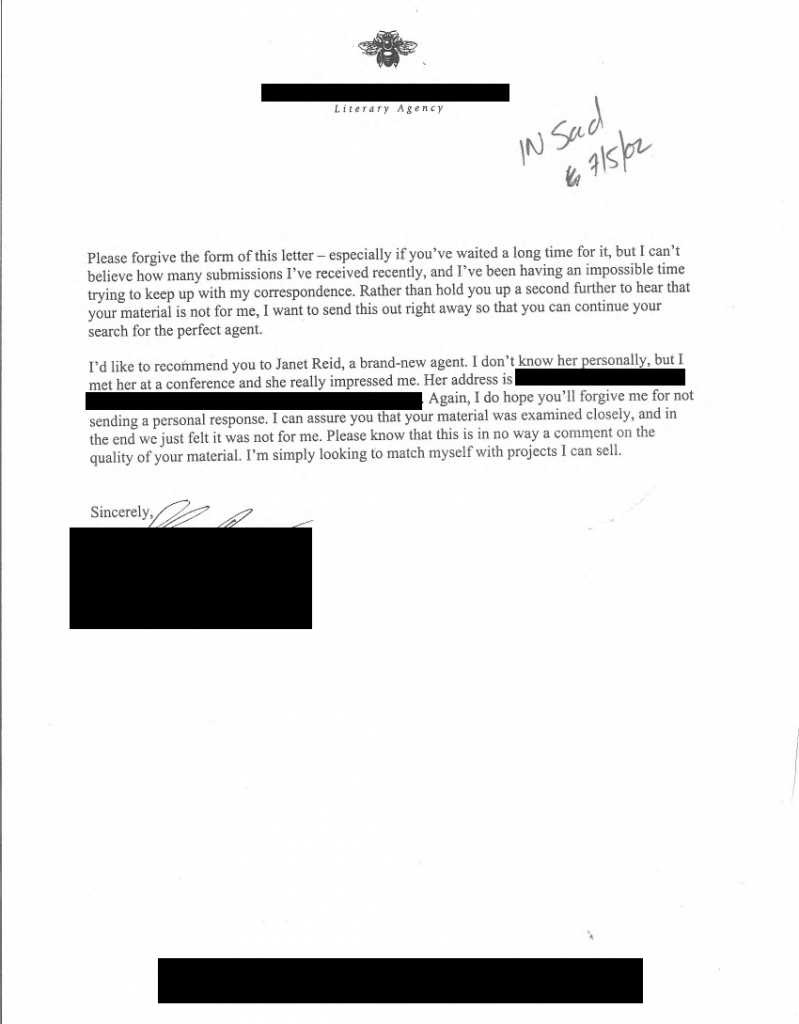 So, a rejection, but one that prompted me to send In Sad Review to the person who would become my agent, and a mere ten years later she in fact sold that novel. Just goes to show, even form rejections can sometimes lead you to something good.
So, a rejection, but one that prompted me to send In Sad Review to the person who would become my agent, and a mere ten years later she in fact sold that novel. Just goes to show, even form rejections can sometimes lead you to something good.
